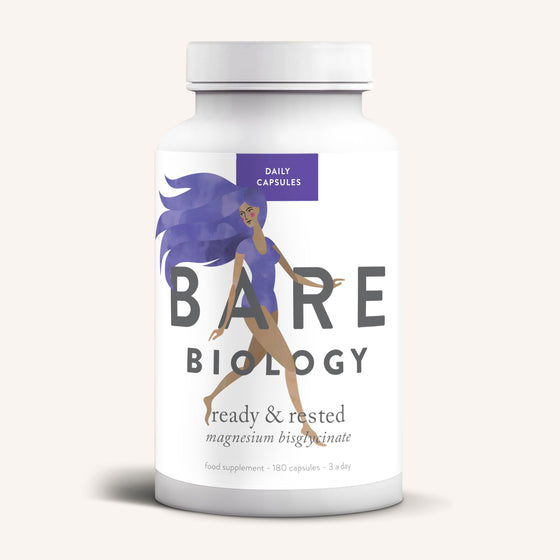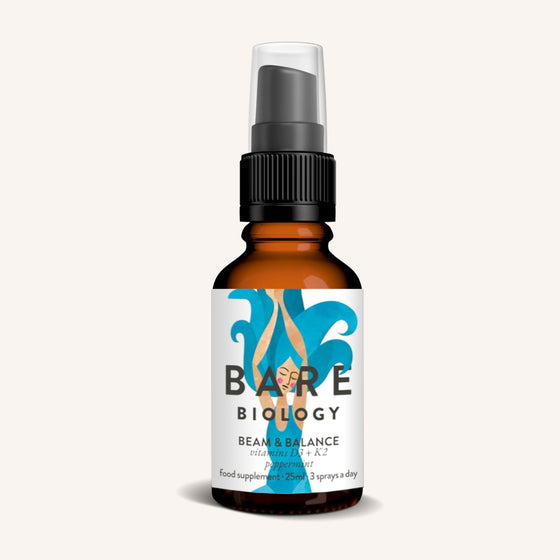As a Nutritional Therapist and Yoga Teacher, Kathryn is passionate about promoting wellbeing and believes optimal health can be achieved by making diet and lifestyle choices that are tailored to your body's individual needs. Intertwining her experience as a yoga teacher, Kathryn focuses on the mind-body connection and considers a healthy gut to be the the root of health. Over to Kathryn...
The term 'heart-health' is used freely in the food and supplement industry, often with little evidence behind health claims. In 2014, cardiovascular disease (CVD) was the second main cause of death in the UK. Although mortality rates have gone down by 68% between 1980 and 2013 in the UK, hospital admissions for all CVD increased by over 46,000 from 2010 to 2015. 36,500 of these were men.
Our hearts give us life, and although no one is immune to heart disease, it can largely be prevented. It’s time to give our hearts some love.
Confusing messages about fat don't help

The low-fat food market is a lucrative one. Mixed messages have made us believe that fat is bad. We’ve been told fatty foods clog up arteries, causing heart attacks, whilst other fats are stored in our bodies, making us fat. However, many low-fat alternatives often contain more sugar than full-fat equivalents, contributing to heart disease. Evidence for sugar’s detrimental effect on health is increasing, with a recent study revealing excess consumption trebling the risk of heart disease. Opting for full-fat not only helps you avoid consuming unnecessary sugars, a study shows that people who ate the most full-fat dairy had a 69% lower risk of CVD than those who ate the least.
The truth is some fats are not only good for us, they’re essential for life. Fats are made of fatty acids which group together to form lipids. They’re not water soluble meaning they have to attach themselves to proteins to travel around the blood. High density lipoproteins (HDL) are considered “good” for our health. They’re mainly produced in the liver and safely transported around the body without causing damage. Low density lipoprotein (LDL) are the so called “bad” fats. This is because they allow small drops of lipids to get caught in blood vessel walls, leading to the build-up of plaque and heart disease or stroke.
Clinical research indicates that types of fats are more important than total amounts of fats in determining risk of CVD.
Fats with a lower risk of CHD
Polyunsaturated fats - these are found in natural vegetable oils and are fairly protective:
- Omega 3: abundant in oily fish.
- Omega 6: found in vegetable oils, nuts and certain meats. One study showed that Omega 6 combined with Omega 3 DHA lowers risks of heart disease in comparison to monounsaturated fats .
Mono-unsaturated fats - main sources are olive oil, canola oil and rapeseed, and are predominantly beneficial.
Fats associated with a higher risk of CHD
Saturated fats
Animal meats and dairy products such as butter, cheese and reduced milk shouldn’t be eaten in excess. However, evidence from long term cohort studies show that high milk consumption doesn’t increase CVD risk and may be beneficial.
Coconut oil
A substrate group of medium-chain triglycerides includes coconut oil and palm oil. Coconut oil is approximately 90% saturated fat, higher than butter which is 64%. Too much saturated fat in the diet has been shown to raise LDL levels, however coconut oil also provides “good” HDL. Research into how coconut oil affects heart disease is limited, so for now use sparingly to reduce the risk of heart disease.
Trans fats
Also known as hydrogenated fats, these are the worst kind. They’re totally artificial and found in processed and fried foods.
What to eat

One of the most studied diets for cardiovascular health is the Mediterranean diet. It’s been shown to lower risk and help manage cardiovascular disease. It works because it improves known vascular risk factors; including blood lipid profile, blood pressure, inflammatory markers, insulin resistance and endothelial dysfunction. It’s also known to improve surrogates of cardiovascular disease, such as waist-to-hip ratio, lipids and markers of inflammation.
Foods to eat:
- oily fish: such as mackerel, sardines, fresh tuna and wild salmon
- monounsaturated fats from olive oil
- fruits: apples, strawberries, blueberries and oranges
- non starchy vegetables: artichokes, beetroot, broccoli and kale
- whole grains: barley, buckwheat, oats, rice and couscous
- nuts/ seeds: almonds, hazelnuts, walnuts, pine nuts and sesame seeds
- moderate alcohol consumption (primarily red wine)
- beans/legumes: chickpeas, kidney beans and lentils (soak overnight to increase digestibility)
Foods rich in phytochemicals, like berries and nuts, appear to be particularly powerful when it comes to heart protection, so be sure to include them in your diet.
Kathryn Fielding - Nutritional Therapist, DipION, mBANT, CNHC
www.kathrynfielding.co.uk





